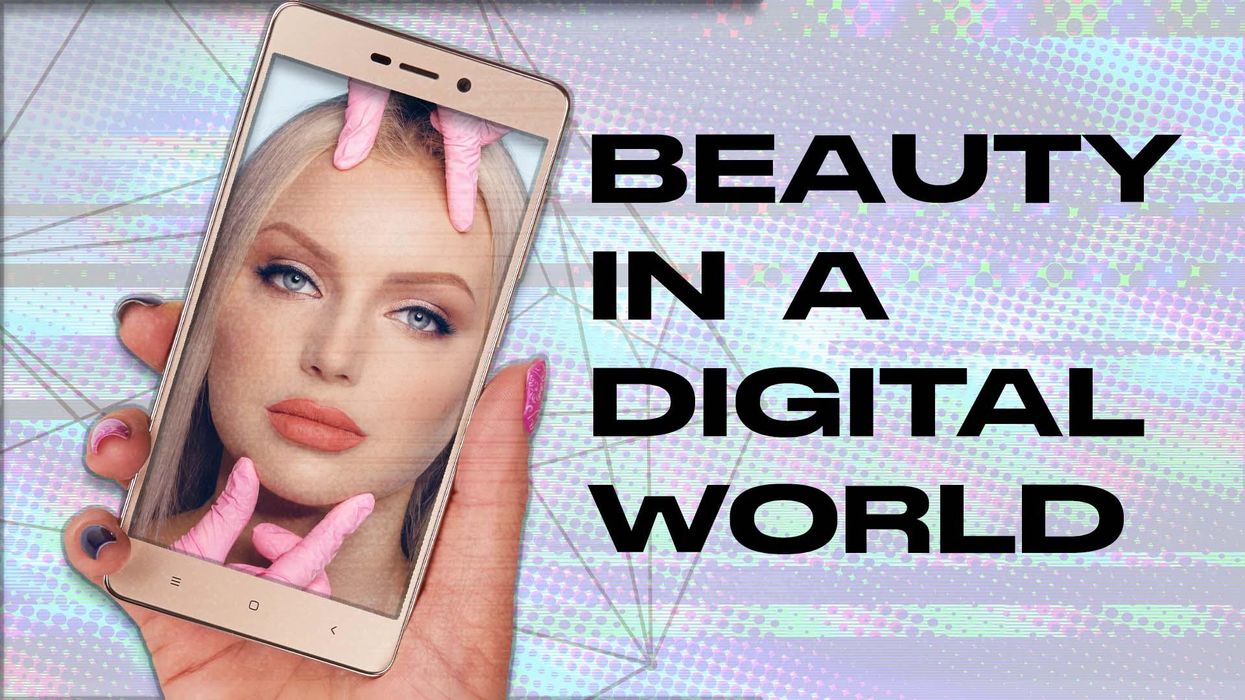Face It: Technology Is Destroying Your Body Image
Opinion: Beauty is only a Facetune away, but it's costing us all.

The views expressed in this Opinion article are the author’s own and do not necessarily reflect the views of Narcity Media.
I grew up before the rise of the social media influencer. Before facetuning and filters became the norm. But, like most teenage girls, I still had body image issues. Seeing gorgeous women on television, in ads, in magazines, I would still feel like I wasn't beautiful enough.
And while I'm now happy with my body, I can't help but wonder how teens feel nowadays.
There's a book called Uglies by Scott Westerfeld that I often think of. It's set in a future that, on the surface, looks like a utopia. Resources aren’t scarce and the world seems to get along. Also, up until the age of 16, you're considered Ugly. For your sweet 16 though, you’re given a surgery that lets you become society’s standard of beautiful, or “Pretty.” Some people reject it, but they’re seen as outcasts, rebels who are brought to “justice” and given the surgery.
Face It: Technology Is Destroying Your Body Image
But that concept has always fascinated me. Growing up knowing that, regardless of how beautiful you actually are, you cannot meet society’s beauty standards. You need to undergo a process that will rub your skin raw to remove scars, alter your face shape, and even surgically adjust your height so you’re not too tall or short. Everyone will be perfect, but you need the assistance of their technology.
There’s no way to grow up in that society feeling good about yourself.
I don't believe our society is far off from that reality. Not the mandatory surgery at 16, but feeling like you'll never be pretty enough without the assistance of the people who say you're not pretty enough.
In school, we were taught about the effects of advertising on our self-image. That ads are trying to sell us a lifestyle, a look that we can attain if we use their product. Follow their diet. Look like what they want us to look like. That was the look my peer group should strive for.
Now though, instead of ads and magazines trying to sell me things, it's everyday people who are showing me what I'm supposed to look like. Influencers who are being paid to show off products and live a lifestyle. Peers who are using Facetune and filters to alter the slightest imperfection. You don't need to be good at Photoshop to look flawless these days.
We know that social media, in general, has a negative effect on people’s body image, especially young women. Researchers have studied for years how social media can lead to depression and eating disorders (some of these researchers being from the social media platforms themselves). “Social comparison is worse on Instagram" is a direct quote from Facebook’s own research into teen girl body-image issues.
We’re creating a better version of ourselves. And that better version gets attention, which gives us that addictive dopamine rush, so we do it again. And again. And again. Facetuning becomes an addiction because it gets us the attention online that we crave.
Because of that, it's getting harder to love ourselves and embrace who we actually are. It’s getting a lot easier to see what we want to become and the flaws we want to remove.
And there's money to be made in exploiting people's insecurities.
The global beauty industry is valued at $511 billion. Nearly $16.7 billion was spent on cosmetic procedures in 2020 in the U.S. alone. Lightricks, the developer of Facetune, is valued at $1.8 billion.
Going back to Westerfeld’s world in Uglies, it’s hard to grow up in a world that tells you you're ugly, but that there is a surgery that will make you beautiful.
But, social media and the age of facetuning aren’t going away.
So, like in Uglies, do we accept that the only way to meet society's standards is through the use of technology?
Or can we accept and acknowledge that what we see online often isn’t real and learn to really love our most authentic selves?